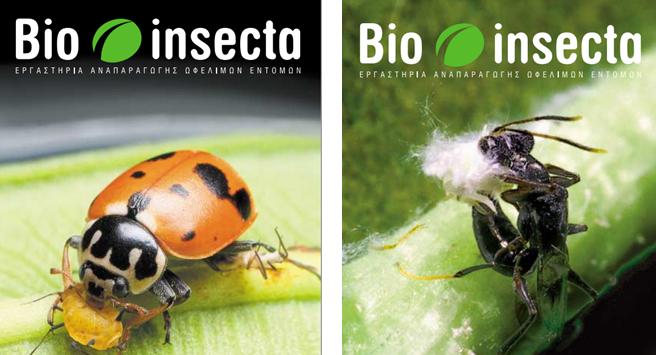In Greece the ladybug (paschalitsa) is considered gouriko, a sign of good luck, as it is in Russia and Italy. As a child I was aware there were bugs you could kill without compunction and a few you shouldn’t. And squashing a ladybug was tantamount to sin. There was a reason for this, one that was not particularly relevant for a kid in the city, but of great importance to his great-great-grandparent farmers. Ladybugs eat the aphids that feed on—and destroy—crops.

Of course, bugs and worms that prey on or parasitize pests have been a part of agriculture for centuries, before they were displaced in large part by chemical pesticides. The emergence and growth of organic farming has led to a rediscovery—and further development—of biological pest management.
Organic farmers, who eschew the use of chemical pesticides, have an array of alternatives to controlling the pests that feed on their crops: crop rotation, physical barriers, natural fungicides, plant extracts and bacterial toxins. They can also make changes to the habitat of the beneficial insects that are already present in their fields and that prey on or parasitize pests, changes that help enhance their survival and reproduction. But they can also boost the size of the population of these beneficial insects by buying more such bugs and releasing them at critical periods during the season.
Buying bugs is not as odd as it sounds. As early as 300 CE, nests of weaver ants were sold in Asia to control infestations of the deservedly grossly named lychee giant stink bug. And yes, there are companies that do just this.
Bio-Insecta is one of them, and a rare and inspiring instance in Greece in which a government-funded research project spun off a robust, rapidly growing company with sales not only in Greece but abroad. In 2005 Pavlos Skenteridis, an entomologist with a doctoral degree from ImperialCollege, joined a two-year project funded by the General Secretariat for Research and Technology to explore ways to exploit the range of native beneficial insects in Greece. In 2007 Skenteridis established Bio-Insecta, the first company of its kind in Greece, and began to supply farms in Crete, the Peloponnese, Macedonia and other areas of Greece with the predatory and parasitoid insects mass-produced in the company’s laboratories in Thermi outside Thessaloniki. Ladybugs, of course, but also tiny wasps that parasitize the larvae of the leaf-miner, nematode worms that feed on vine weevils and cabbage maggots, mites that prey on fungus gnats and thrips.
Skenteridis says his company is still small in comparison to the other 30 firms in Europe that produce biological control agents. Still, with 25% of his production being exported to Spain, Italy, the UK and elsewhere, the four-year old firm is already making its mark, and plans are underway to expand the range of beneficial indigenous insects that the company produces. The firm won the Hellenic Entrepreneurship Association’s “Green Dream Competition” in 2011.
One of the greatest challenges the firm faces is the widespread lack of knowledge among local farmers. Whereas over 95% of cucumber crop in the Netherlands, for example, is grown with the help of biological pest management, only 2% of the crop in Greece is cultivated in this way. To its credit, the company has created and trained a network of local technical advisors. This support complements a range of (distributed) products such as pherome traps and biopesticides, which, in addition to the helpful bugs it produces, enable cultivators to adopt an integrated eco-friendly and in the end more economical approach to pest management.
